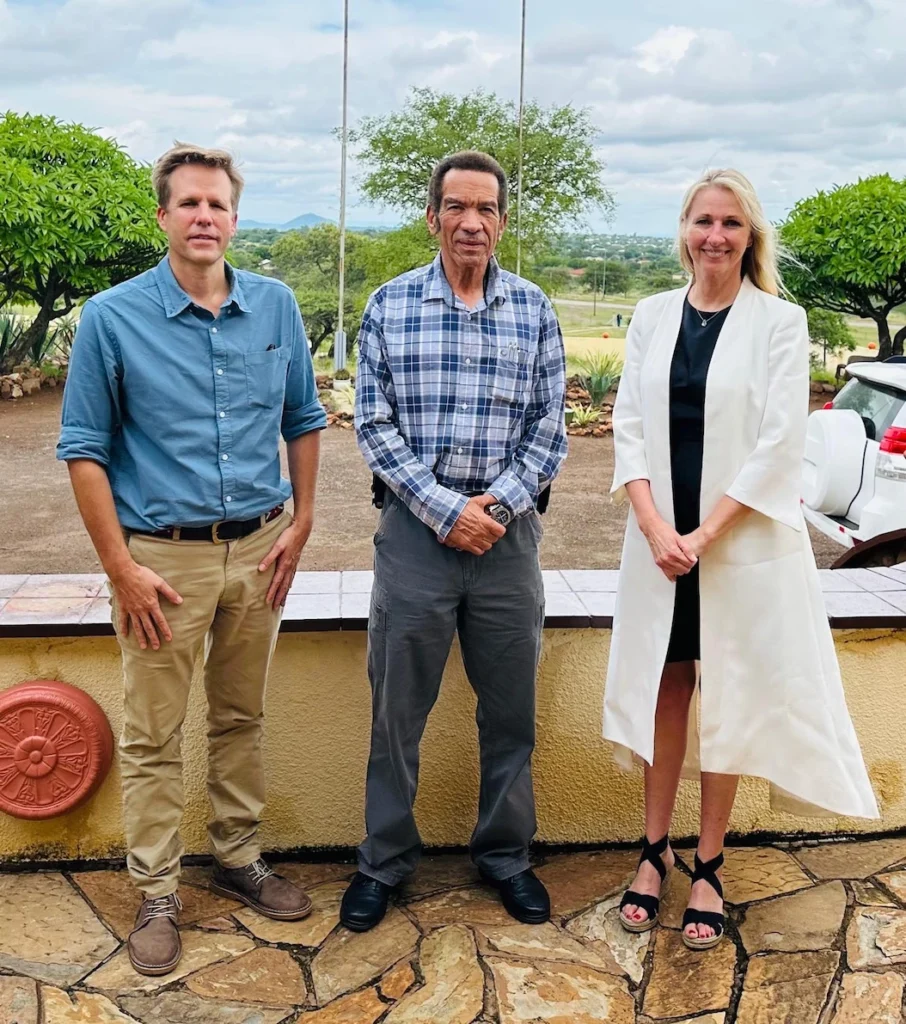New campaign will create safe haven for elephants in Angola, promoting ecotourism over trophy hunting
Washington, D.C. — The Center for a Humane Economy announced a groundbreaking initiative in southern Africa for African elephants — in this case, working to facilitate migration of elephants from Botswana to Angola.
The organizations have partnered with the Botswana-based Elephants Without Borders (EWB) — a cross-border research organization focused on elephant conservation and management — in a collaboration project dedicated to creating a safe corridor to Angola to repopulate that nation with elephants massacred during the nation’s long civil war and to relieve social pressures between elephants and people in Botswana. Nearly as large as Texas but just with 2.6 million people, Botswana has more elephants than any other African nation.
“It marks a homecoming for this iconic species, allowing elephants to return to their natural habitats after enduring the devastating impacts of civil conflict,” said Mike Chase, co-founder of EWB. “Our collaboration with the Center for a Humane Economy and the Angolan National Biodiversity Institute for Conservation embodies this and represents an ambitious approach to the conservation of elephants on a landscape scale.”

The collaboration, which also includes the Halo Trust and the Global Councils of Animal Wellness Action and the Center, marks a significant step in creating the Great Elephant Corridor, which will establish a safe migration route for elephants across multiple countries and promote ecotourism as an alternative to trophy hunting.
Jennifer Skiff, director of international programs for the Center for a Humane Economy and Animal Wellness Action, is meeting with government leaders in Luanda, Angola, and Gaborone, Botswana, this week to help with facilitating this landmark southern African elephant protection and ecotourism project.
“We are working to guide and assist in the creation of animal welfare laws, policies and systems that promote ecotourism,” Skiff said. “Our vision is to create a thriving, humane economy in Angola while supporting elephants and other wildlife as it migrates between countries in southern Africa.”
The heart of the Great Elephant Corridor runs along the Cuando River, which forms the international border between Angola and Zambia and Botswana and Namibia. The river is a lifeline for the world’s largest elephant population. This route was identified by Elephants Without Borders after analyzing more than 25 years of satellite tracking data from 83 collared elephants. The vision of the Great Elephant Corridor will help restore habitat connectivity and secure key migration corridors for elephants and other wildlife into suitable habitat in Angola.
“A 27-year civil war resulted in a mass depopulation of wildlife in the vast and beautiful nation of Angola,” said Wayne Pacelle, president of the Center and Animal Wellness Action. “This partnership with Elephants Without Borders is about healing, rehabilitation, and restoration. The plan eases social conflicts between people and elephants in Botswana and will accelerate the natural migration of elephants from there to Angola where the repopulation of wildlife is welcomed by the government as it builds an engine of ecotourism.”
Establishing safe passage for elephants to move between Luengue-Luiana and Mavinga National Parks is vital for the future of the world’s largest elephant population. The Great Elephant Corridor’s bold approach offers renewed hope for a future where both elephants and local communities can coexist. Together, the organizations are committed to ensuring these incredible animals can thrive in their last stronghold in southern Africa.
“Safe habitats and interconnected spaces to live and roam freely are key for the future of elephants,” said Mike Chase.

Shown from left are Mike Chase, Elephants Without Borders; His Excellency Ian Khama, former president of the Republic of Botswana; and Jennifer Skiff, director of international for Animal Wellness Action and the Center for a Humane Economy. They were photographed in Serowe, Botswana.
Photos courtesy of Jennifer Skiff, director of international for Animal Wellness Action and the Center for a Humane Economy, and Mike Chase, Elephants Without Borders.

